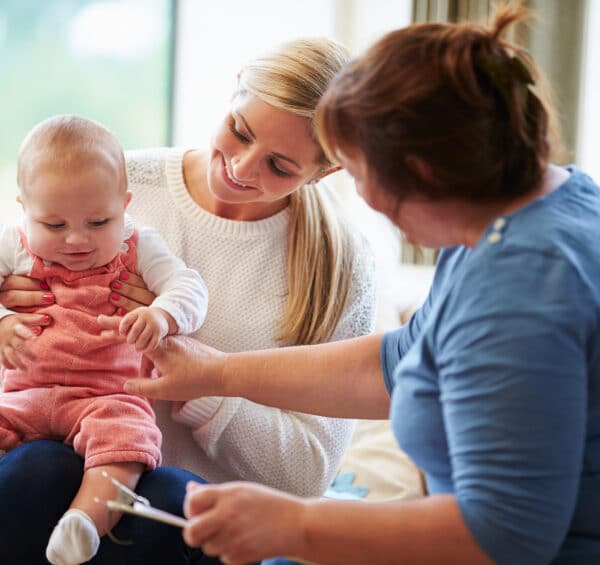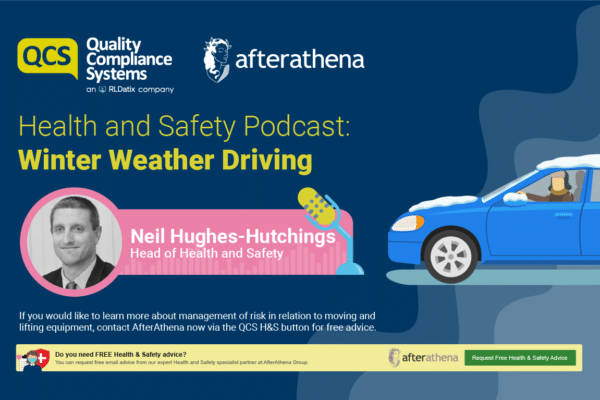 The CQC rate Practices against particular population groups
The CQC rate Practices against particular population groups
The CQC now inspects and rates practices against six population groups – older people, long term conditions, mother’s babies and children, working age, people living in vulnerable circumstances including people with a learning disability and people experiencing poor mental health, including dementia. This article, the third in a series of six articles, will address the ‘mothers, babies, children and young people’ population group and how we could improve the service we give to them.
The CQC will assess whether mothers, babies, children and young people receive safe and appropriate care, receiving treatment considered in line with current published guidelines and best practice. They will consider if the practice has a good understanding of safeguarding matters and if they are engaged and proactive in child protection work locally.
This article focuses on the following groups and what the CQC inspection team may assess for each group:
- Maternal / Women’s Health
- Perinatal / Infant Health
- Child Health
- Adolescent and Young Adult Health
- Children and Youth with Special Health Needs
Maternal / Women’s Health
The CQC will look at intelligent monitoring data, from cervical screening uptakes to rates of termination of pregnancy. Women’s health covers lifestyle, periods, contraception and the pill, miscarriage, abortion, after childbirth, screening and tests. The CQC will check if there is sufficient patient information about these areas for women. Practices should check they have information for patients who wish to stop smoking, and publicise clinics if they offer well women checks, contraception including implant fitting and removal, cervical screening and Chlamydia testing.
Perinatal and Infant Health
The inspecting team will check if advice and support for expectant and post natal mothers was provided, this may be by the local midwifery team based at the practice, and if mother and baby clinics and health checks are available with the mother’s named GP at baby’s sixth week. If parents are available in the waiting room during the CQC inspection they may speak with mothers with young babies to find out about their antenatal care and the care they and their new baby has received since. Consider having a well-developed practice website with a link for patients to access the NHS choices pregnancy care planner. This gave the patients information about all the stages of their pregnancy from conception to the first few weeks after their baby’s birth.
Child Health
The inspecting team will assess what systems the practice has in place for child health development and surveillance, and whether there is partnership working with the School Nurse and Health Visitor services. It is beneficial for midwives and health visitors to attend regular practice meetings to discuss patients in their care, particularly to raise any safeguarding concerns. Immunisation rates for all standard childhood immunisations will be assessed. For example, MMR vaccination rates for five year old children compared to the average in the local CCG area and Hib/Men C Booster rates for the same age group.
The CQC may ask patients to tell them if children and young people are treated in an age appropriate way and recognised as individuals. Consider offering appointments outside of school hours and whether or not the premises are suitable for children and babies. Try to provide examples of joint working with midwives and health visitors such as minutes of team meetings. Provide evidence of information sharing about looked after children or where children are not attending immunisation appointments. Make sure staff have received training in safeguarding children so that they have the knowledge and understanding to act if they were concerned that a child may be at risk of harm.
Adolescent and Young Adult Health
The CQC inspecting team will speak to staff to check if they are aware of the Gillick competence and Fraser guidelines when asked about treating teenage patients. Gillick competence is a term is used in medical law to decide whether a child (16 years or younger) is able to consent to their own medical treatment, without the need for parental permission or knowledge. They may also check if Chlamydia (sexually transmitted infection) testing packs are available, some practices place them in patient toilet areas to increase uptake without embarrassment. The practice should advertise additional services they offer such as contraception including implants and family planning services.
Children and Youth with Special Health Needs
Practices should consider having systems in place for identifying and following-up children living in disadvantaged circumstances and who are at risk. For example, the practice could have processes in place to identify and support local families in these circumstances. Practices should review the number of children and young people who have a high number of A&E attendances and what actions could be taken to prevent or reduce this. It would also be a good idea to review what services are available locally for children with special health needs and how practices can assist families gaining access to these services.
Key Areas for Action
These are actions which will practices should consider to evidence they are meeting the needs of the families, children and young people group and what outstanding provisions may also be offered.
- Publicise services, screening and clinics – leaflets and website.
- Ensure staff are fully trained and aware of their responsibilities under the Mental Capacity Act 2005.
- Set up regular multi disciplinary team meetings with Health Visitors, School Nurses, and Midwives as appropriate.
- Check data and targets – immunisations and A&E attendances.
- Consider offering appointment times for families outside of school hours.
- Check the premises are suitable and safe for children and babies.






